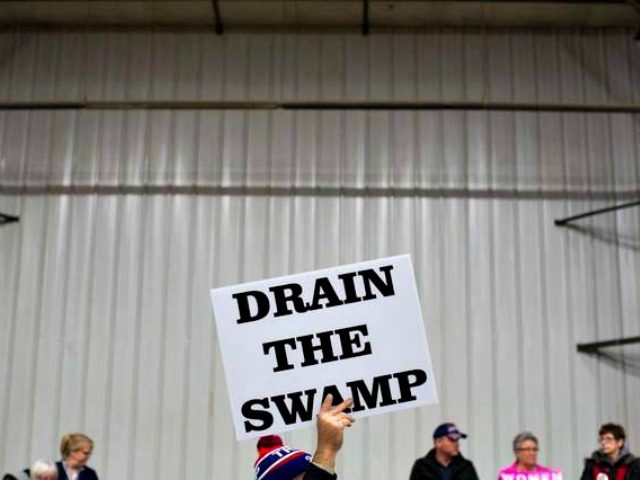The House Oversight and Government Reform Committee passed a bill on Tuesday to fully audit the Federal Reserve.
The House passed previous versions of the legislation in 2012 and 2014, with dozens of Democrats joining Republicans in support. Previous bills to audit the Federal Reserve died in the Senate.
While on the campaign trail, Donald Trump expressed interest in passing legislation to audit the Federal Reserve.
Democrats remain opposed to auditing the Federal Reserve, claiming that it would harm its independence. Rep. Carolyn Maloney (D-NY) said, “We should not in any way hinder their independence.”
Breitbart News spoke with Congressman Thomas Massie (R-KY), the sponsor of the Federal Reserve Transparency Act of 2017, about auditing the Federal Reserve.
Congressman Massie said that despite the contention of critics, such as Rep. Maloney, the Federal Reserve is not independent. He said:
They say that the Fed needs to remain independent and frankly we have no idea if the Fed is independent between Wall Street and the Treasury. The Federal Reserve was set up to be a second treasury. Is the motivation for the Fed good monetary policy or is it to make Wall Street money? We simply don’t know that it’s independent.
Congressman Massie added that the Federal Reserve has a terrible track record of maintaining the value of the dollar. The Kentucky representative explained, “The Fed has not done well managing the value of the dollar. The power to coin money and regulate the value thereof exists with Congress. The dollar lost more than 95 percent of its value since we’ve created the Federal Reserve in 1913.”
Critics of auditing the Federal Reserve argue that the Government Accountability Office (GAO) regularly audits the Fed. Massie countered that argument, saying,
The problem is that it isn’t a full audit. The GAO cannot audit Federal Reserve transactions with foreign governments and foreign banks. Sixteen trillion dollars flowed to foreign banks and foreign governments in the financial crisis without any oversight. The GAO cannot examine any Fed actions on monetary policy matters, it cannot audit transactions made at the discretion of the Federal Open Market Committee, and the GAO cannot audit communications of the Federal Reserve for any of the three previous areas. They do not want us second guessing their decisions.
Massie argues that the Fed’s lack of transparency makes it harder to assess the effectiveness of monetary policy. He said:
I don’t know whether raising interest rates is good or bad but what is the thought process behind it? Why do we have to read the smoke signals from the Fed to figure out how often and how much they will raise interest rates?
They have kept rates artificially low for a long time, and they did the QE (Quantitative Easing), and the problem is that the Fed’s balance sheet has tripled since 2008. They’re not just trying to lower interest rates in the short-term, they’re also trying to lower long-term interest rates as well by buying assets, and that’s a problem. Four years ago we had a meeting with Bernanke, it wasn’t televised and there weren’t many staffers there. I asked about the distortions that low-interest rates creates; it punishes savers and retirees. Former Fed chair Bernanke said we know it’s bad and we will try to restore interest rates, but they continued to add to the balance sheet for several years and interest rates are still probably lower than would be in a natural market.
In Japan they’re more explicit about this, they’re trying to force people out of cash and into the stock market to stimulate the stock market.
Congressman Massie said that by auditing the Federal Reserve, we might find out if the Federal Reserve bases its decisions on sound economics. He said, “We might find out that their decisions are bound by conflicts of interest, and not bound by sound economic principles, and who knows what we’ll find out.”
Massie contended that the Federal Reserve is a part of the D.C. swamp. He said, “We need to audit the Fed. It’s a creature of the swamp. It’s controlling the economy, and it’s still behind the veil, and people are demanding more transparency in their government in the internet age—and we should know what our government is doing.”

COMMENTS
Please let us know if you're having issues with commenting.